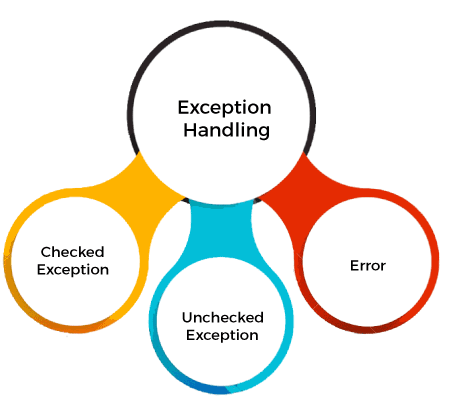Exceptions & Errors#
Overview#
Definition
Exception handling is a mechanism in programming languages that deals with runtime errors and exceptional situations. It allows you to gracefully handle errors and continue execution rather than crashing the program.
Use Cases
Exception handling is used in scenarios where unexpected situations can arise, such as file I/O errors, network communication issues, or arithmetic errors.
Pros & Cons
Readability
Improves code readability by separating error-handling logic from main program flow.
Structured
Provides a structured way to handle errors and recover gracefully.
Robust & Reliability
Enhances program robustness and reliability by preventing crashes due to unexpected errors.
Overhead
Can introduce performance overhead when exceptions are thrown frequently.
Convoluted Code
Overuse of exceptions can lead to convoluted code and reduced maintainability.
Exception & Error Handling Syntax#
BEGIN
TRY
Read userInput
Convert userInput to integer
PRINT "You entered:", userInput
CATCH InvalidInputException
PRINT "Invalid input! Please enter a valid integer."
CATCH Exception
PRINT "An unexpected error occurred."
END TRY
END
1#include <iostream>
2using namespace std;
3
4int main() {
5 try {
6 int userInput;
7 cin >> userInput;
8 if (cin.fail()) {
9 throw runtime_error("Invalid input! Please enter a valid integer.");
10 }
11 cout << "You entered: " << userInput << endl;
12 }
13 catch (const exception &e) {
14 cerr << e.what() << endl;
15 }
16 return 0;
17}
1def main():
2 try:
3 user_input = int(input("Enter an integer: "))
4 print("You entered:", user_input)
5 except ValueError:
6 print("Invalid input! Please enter a valid integer.")
7 except Exception as e:
8 print("An unexpected error occurred.")
9
10
11if __name__ == "__main__":
12 main()
1import java.util.Scanner;
2
3public class ErrorHandlingDemo {
4 public static void main(String[] args) {
5 try {
6 Scanner scanner = new Scanner(System.in);
7 int userInput = scanner.nextInt();
8 System.out.println("You entered: " + userInput);
9 } catch (java.util.InputMismatchException e) {
10 System.err.println("Invalid input! Please enter a valid integer.");
11 } catch (Exception e) {
12 System.err.println("An unexpected error occurred.");
13 }
14 }
15}
1use std::io;
2
3fn main() {
4 let mut user_input = String::new();
5 io::stdin().read_line(&mut user_input).expect("Failed to read input");
6 match user_input.trim().parse::<i32>() {
7 Ok(num) => println!("You entered: {}", num),
8 Err(_) => println!("Invalid input! Please enter a valid integer."),
9 }
10}
1package main
2
3import (
4 "fmt"
5 "strconv"
6)
7
8func main() {
9 var userInput string
10 fmt.Print("Enter an integer: ")
11 fmt.Scan(&userInput)
12 num, err := strconv.Atoi(userInput)
13 if err == nil {
14 fmt.Println("You entered:", num)
15 } else {
16 fmt.Println("Invalid input! Please enter a valid integer.")
17 }
18}
Output
In each, a user-entered value is validated through error / exception handling. The exception [error] is thrown when the validation fails.
Note: Various means of evaluation are available per language with a range of validation abilities
Outcomes will vary based on the exception throw and or error caught...
Compare & Contrast#
Language |
Methodology |
Comments/Notes |
|---|---|---|
C++ |
Exception-based with |
Utilizes standard exceptions for error handling. |
Python |
Exception-based using |
Python’s concise syntax simplifies error handling. |
Java |
Exception-based with |
Strongly typed exceptions offer clear error identification. |
Rust |
Result-based approach with |
Forces explicit handling of success or error cases. |
Go |
Return value-based with error returns and |
Simplicity in error handling with multiple return values. |

